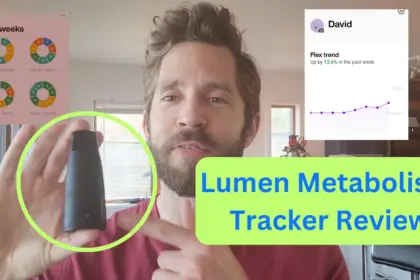The thyroid gland, while small in size, has an enormously important role in the body. Located at the front of the neck in a butterfly-shaped formation, the thyroid produces hormones that regulate critical bodily functions including metabolism, energy levels, growth, heart rate, digestion, muscle control, brain development, mood, and bone maintenance.
When the thyroid is not functioning optimally, it can lead to an array of health issues that disrupt both physical and mental wellbeing. Unfortunately, many people engage in common food habits that can negatively impact thyroid performance.
The foods we choose to eat on a daily basis provide the raw materials and signals needed for proper thyroid hormone synthesis and release. Making the wrong dietary choices can starve this gland of essential nutrients, trigger autoimmune reactions, and throw its delicate hormone balance out of whack.
In this article, we will explore 7 of the most common yet overlooked food mistakes that may be setting you up for thyroid dysfunction. Becoming aware of these potential pitfalls is the first step toward making better choices to protect thyroid health.
We will examine factors such as insufficient iodine intake, over-consumption of gluten, imbalanced blood sugar levels, and a diet high in processed foods and chemicals. You will learn how each of these issues can disrupt optimal thyroid function as well as simple diet modifications you can make to avoid these missteps.
Getting your thyroid health back on track begins with understanding where you may be going wrong and making more informed food choices. Equipped with the right information, you can ensure your daily diet provides the nutrients this essential gland needs while avoiding reactive compounds.
Making positive changes to how you eat can get your thyroid firing on all cylinders again, restoring energy, easing weight management, and allowing you to feel your absolute best.
7 Food Mistakes That Are Harming Your Thyroid
What you eat can affect your thyroid gland as well as your body’s ability to use thyroid hormone — for better or worse. So many foods offer wonderful support for healthy thyroid function, but on the flip side, other foods contribute to thyroid dysfunction and symptoms of low thyroid.
If you are feeling tired all the time, gaining weight or noticed that your hair is dull and brittle, it’s time to take a careful look at your diet and get rid of foods and cooking practices that could be putting your thyroid at risk.
1. You’re Not Eating Sea Vegetables
Your thyroid simply can’t function without iodine. If you’re deficient, your thyroid lacks a basic building block for producing adequate amounts of thyroid hormones. In the United States, conventional table salt is fortified with iodine to provide the mineral, but women who eat non-iodized sea salt or a reduced salt diet may not be getting enough.
Sea vegetables like nori, kelp, kombu, and wakame are rich sources of iodine – a mineral essential for thyroid hormone production. Consuming too few sea vegetables can deprive the thyroid of the iodine it needs to synthesize T3 and T4 hormones.
The recommended daily intake of iodine is 150 micrograms for adults. However, many people eat less than half of their recommended allotment. Low iodine levels lead to hypothyroidism over time as the thyroid is unable to make enough hormones with inadequate iodine sources.
Sea veggies provide the most bioavailable food source of iodine. Just one sheet of nori may contain up to 50 micrograms while kombu has hundreds of micrograms per serving. Unfortunately, sea vegetable consumption is not yet common in Western diets.
Without sea vegetables as part of regular meals, maintaining optimal iodine status is difficult. Iodine deficiency rates remain common in many parts of the world. Ensuring intake through seaweed dishes, supplements, or iodized salt is important to prevent thyroid issues.
Phytoplankton From Activtion Products (Click Here to Visit) Can Be A Great Source Of Minerals To Support Thyroid Health!
2. You’re Still Eating Gluten
Gluten is a protein found in wheat, barley, and rye that can trigger autoimmune reactions in sensitive individuals and damage the thyroid. There is a strong link between celiac disease (gluten intolerance) and autoimmune thyroid conditions like Graves’ disease and Hashimoto’s thyroiditis.
Several ways gluten can harm thyroid health include:
- Inflammation – Gluten causes inflammation and intestinal damage that can spillover to inflame thyroid tissue. Chronic inflammation impairs the thyroid’s ability to produce hormones.
- Immune system activation – Gluten exposure activates immune cells that can mistakenly attack the thyroid as well. This exacerbates autoimmune reactions.
- Nutrient deficiencies – Celiac disease and gluten sensitivity impair nutrient absorption from food, notably iron, vitamin D, selenium, and zinc. Deficiencies in these key minerals impair thyroid hormone synthesis.
- Leaky gut – Intestinal permeability caused by gluten allows undigested food particles and bacterial endotoxins into the bloodstream, triggering autoimmunity against the thyroid.
- Hashimoto’s thyroiditis – Research shows a strong association between Hashimoto’s, an autoimmune hypothyroid condition, and celiac disease in patients.
For those with autoimmune thyroid disease or unexplained thyroid issues, a gluten-free diet may provide significant benefits. Eliminating gluten sources like wheat, barley, rye, and malt may help dampen autoimmune attacks on the thyroid.
Adding A Natural Healing Supplement Like Radiate 21, Which Contains Ashwagandha & Coconut Oil, Among Many Other Herbs That Can Help Heal Your Gut & Thyroid With No Uncomfortable Side Effects
Click Here To Learn More About Radiate 21
3. You’re Not Eating Cruciferous Vegetables Correctly
Cruciferous vegetables like kale, broccoli, cauliflower, cabbage, and Brussels sprouts contain compounds called goitrogens. Goitrogens can interfere with thyroid hormone synthesis when consumed raw and in high amounts.
Specifically, goitrogens inhibit the uptake of iodine by the thyroid gland. Iodine is an essential component needed to produce thyroid hormones T3 and T4. Without adequate iodine, the thyroid cannot make enough of these hormones, eventually leading to hypothyroidism.
The main goitrogens found in crucifers are thiocyanates, nitriles, and isothiocyanates. Isothiocyanates are particularly goitrogenic. These compounds are partially deactivated when cruciferous veggies are cooked, but remain wholly intact when eaten raw.
Consuming over 5 servings per day of raw crucifers like salad topped with raw kale and cabbage, raw vegetable juice, or a large plate of crudités could provide goitrogen levels high enough to impair thyroid function. This is especially true if you are iodine deficient.
Light cooking like steaming cruciferous vegetables reduces goitrogens while retaining nutrients. Avoiding large portions of raw crucifers daily is prudent for those with hypothyroidism. Monitoring iodine levels can also detect intake issues early.
4. Your Sweet Tooth Is Untamed
Eating a diet high in refined sugars and excessive carbohydrates can wreak havoc on thyroid health in various ways. First, it causes surges and crashes in blood sugar, leading to insulin resistance over time. Insulin resistance impairs the thyroid’s ability to utilize energy properly and produce hormones.
High sugar intake is also linked to increased inflammation throughout the body and autoimmune flare-ups. Autoimmunity directed at the thyroid is the most common cause of hypothyroidism. Eating a high glycemic diet exacerbates autoimmune conditions like Hashimoto’s thyroiditis.
Furthermore, sugary foods are depleted of nutrients the thyroid needs like zinc, selenium, and magnesium. Refined flours, cereals, juices, and sodas contain empty calories devoid of these essential minerals. Their lack starves the thyroid of key components required to synthesize thyroid hormones.
Finally, spiking blood sugar prompts the release of stress hormones like cortisol. Chronic cortisol elevation negatively impacts thyroid function and thyroid hormone receptor activity. It can lead to suppressed TSH and lowered T4 and T3 levels over time.
To protect your thyroid, swap out refined white sugar for natural low glycemic sweeteners. Increase intake of nutrient-dense whole foods over pre-packaged snacks and baked goods. Stabilizing blood sugar by controlling carb and sugar intake prevents thyroid burnout.
5. You Can’t Go A Day Without Deli Meats
Processed deli meats like bacon, salami, and ham are commonly eaten foods that could be disrupting thyroid function. These meats contain high amounts of added nitrates and nitrites to preserve color and extend shelf life. While these preservatives give deli meats their characteristic taste and appearance, they can be problematic for the thyroid.
When consumed, nitrates and nitrites are converted into compounds called nitrosamines in the body. Nitrosamines are considered carcinogenic and have been linked to an increased risk of thyroid cancer. The thyroid is especially vulnerable to cancer formation when exposed to these compounds over time. Eating processed meats just a few times per week significantly raises nitrosamine exposure.
Additionally, deli meats tend to be high in sodium content. Excess dietary sodium is linked to increased risk of autoimmune diseases like Graves’ disease or Hashimoto’s thyroiditis. High sodium intake can trigger or exacerbate autoimmunity against the thyroid. Processed deli meats also tend to lack key nutrients like iodine and selenium needed for healthy thyroid hormone production.
The bottom line is moderating intake of processed meats like deli sandwiches, bacon, salami, and hot dogs can go a long way in reducing exposure to thyroid-disrupting compounds. Choose fresh, unprocessed meat as often as possible. Limit deli meat to an occasional indulgence rather than an everyday food choice to avoid unnecessary risk to your thyroid health.
6. You’re Letting Kale Interfere With Your Iodine Levels
Kale contains compounds called glucosinolates that can interfere with adequate iodine absorption when consumed in excess. Iodine is an essential mineral required by the thyroid gland to produce thyroid hormones. Even mild iodine deficiency can lead to hypothyroidism over time.
The glucosinolates found in kale and other cruciferous vegetables like broccoli, cauliflower, and Brussels sprouts block the thyroid’s ability to take up iodine. They do this by inhibiting the sodium-iodine transporter responsible for moving iodine from the bloodstream into thyroid cells. Without sufficient iodine, the thyroid is unable to synthesize the hormones T3 and T4 properly.
Consuming 1-2 servings of cruciferous vegetables per day is unlikely to cause issues. However, regular intake of very large, multiple servings of raw kale or juice made primarily from kale could promote iodine deficiency. This is especially true if you are already iodine deficient or suffer from thyroid disease.
Cooking kale and other goitrogenic veggies helps deactivate the glucosinolates. Steaming, boiling, sautéing, and baking can help reduce kale’s impact on iodine absorption. Those with thyroid issues should limit raw kale intake and cook kale thoroughly to avoid exacerbating iodine deficiency. Monitoring iodine levels through lab testing is also recommended for at-risk individuals.
7. You’re Packing Too Much Plastic
Plastics contain chemical additives like bisphenol A (BPA) and phthalates that can disrupt proper thyroid function when exposure occurs. These chemicals mimic estrogen in the body, and elevated estrogen dominance hinders thyroid hormone regulation.
BPA found in polycarbonate plastics and food can linings interacts with thyroid hormone receptors. This blocks receptors from receiving thyroid hormones T3 and T4, resulting in hypothyroid-like effects. Phthalates found in plastic food wraps, containers, and children’s toys also bind to thyroid receptors, again reducing thyroid hormone action in cells.
Exposure to these plastic compounds may reduce circulating thyroid hormone levels in the bloodstream. They also suppress the body’s ability to convert T4 into the more biologically active T3 hormone. Studies link high BPA and phthalate exposure to increased risk of thyroid cancer as well.
Ways to reduce exposure include choosing BPA-free bottles/containers, avoiding microwaving plastics, opting for fresh foods over canned/processed in plastic, and being mindful of plastics with recycling codes #3, #6, and #7. Prioritizing glass, stainless steel, and ceramic housewares when possible can minimize contact with thyroid-disrupting plastics.
Taking steps to limit plastic use and contact with food/drinks is prudent for optimal thyroid health. Considering plastics contain endocrine disruptors, being proactive helps safeguard thyroid function.
In Conclusion:
The thyroid gland plays an indispensable role in overall health, yet many common food choices can sabotage its function. Avoiding certain dietary pitfalls is the key to keeping this delicate gland in proper working order.
As discussed, refined sugars, processed deli meats, cruciferous veggies in excess, plastics, gluten, soy, and insufficient iodine intake can all tax the thyroid in different ways. Being mindful of these food mistakes and making more informed choices can get your thyroid back on track.
Prioritize fresh, whole foods over processed convenience items. Moderate but don’t completely avoid goitrogenic foods. Cook cruciferous vegetables to reduce anti-nutrients. Choose seafood, seaweed, eggs, and meat from pasture-raised animals whenever possible.
Stay hydrated, manage stress levels, and support your thyroid daily through nutrition. With greater awareness of how diet impacts thyroid health, you can feel energized, maintain a healthy weight, and support optimal wellness by eating foods that nourish, rather than hinder, this essential gland.






